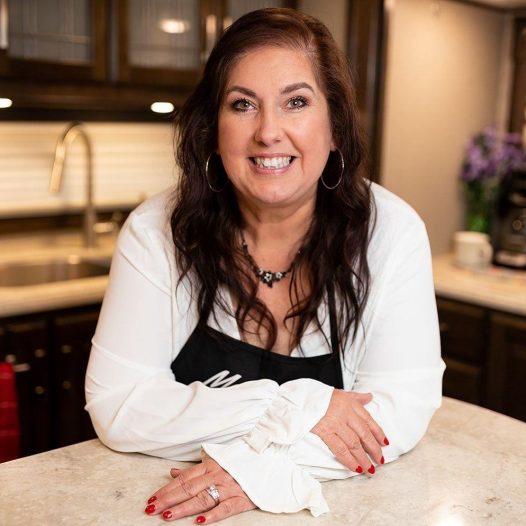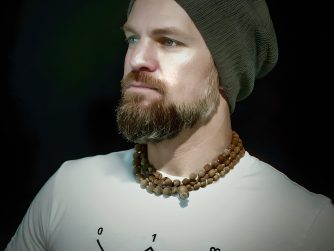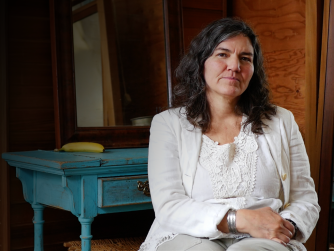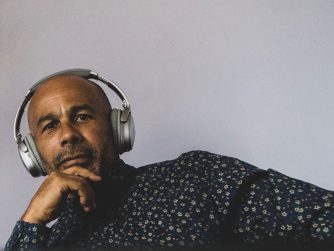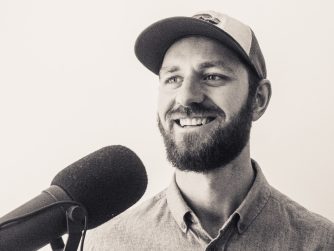If you’re trying to collaborate with other creators or networking to spread your message, then tune into this week’s episode of Be On Air. I interview Kim White, founder of My Sexy Business, host of the My Sexy Business Podcast, Serial Entrepreneur, Author, Speaker, Collaborator Extraordinaire, Leader of MSB Team, Mastermind Leader, and Magazine Creator/Founder.
This episode is your guide to understanding the keys to successful collaboration, building relationships instead of making transactions, serving your audience in engaging ways and creating a sexy business. Kim is all about spreading your message from a place of confidence and positivity to showcase who YOU are and why changing your attitude can make the difference.
Find Out More about My Sexy Business
Follow Kim White | @MySexyBusinessTeam
Want to talk about your podcast? Connect with K.Lee and Podcast Farm
Book a free strategy session to talk about your podcast:
Join the podcast farmers FB group and grow your show!
K.Lee Marks: [00:00:00] All right. All right. Welcome everyone. What do you think of the new background? This is Kaley marks. You’re watching be on air or listening. If you’re on the podcast app and I am very excited. I have come to Draper startup house in Austin, Texas to record. Several interviews today with some incredible folks.
I’m really excited to share their knowledge, their wisdom with you all. We’re going to have some really amazing conversations and today’s guest is, is really, really awesome. And she’s going to be talking about collaboration. Collaboration is so important, especially while we are all. You know, at different stages of the lockdown stuck at home, we need to learn how to be even more efficient with collaboration.
And, uh, she is the founder of my sexy business and she’s going to share some awesome wisdom. So please stick around. We will be right back.
Don’t compare journeys. Your journey is your specific journey and you will be guided to the best way to catch you. Where will you go? I believe that right now is a great opportunity to leverage the power of voice. David Copperfield is a billionaire, not a millionaire. He’s a billionaire. And how did he become this?
He tapped into something profound, which is the art storytelling. Be on air powered by podcast farm.
Kim white, you are a collaboration expert, and I am really, really stoked to get to talk to you. Welcome to the show. Thank you so much for inviting me. You know, we ha we had a funny, mixed up, actually, I’ll just go ahead and share that with the audience. We, uh, sh uh, Kim thought that she was interviewing me and I thought that she was in that I was interviewing her.
So I got the, I got to win in this situation. I get to interview her today, but, uh, maybe, maybe we’ll we’ll swap later. Uh, so Kim, you love collaboration. We were talking about this. Collaboration is so important. What are some things that people get wrong about collaboration?
Kim White: [00:01:59] I think the main thing that people get wrong about collaboration is they don’t understand the power of a high level collaboration.
There are actually many levels of collaboration and most people just barely scratch the surface. Um, the one that annoys me, I’m just going to be honest is the one where you get. And messaging your DM saying, Hey girl, let’s collaborate. And really what they’re trying to do is sell you something that is absolutely not collaboration.
Um, collaboration is so much more than what most people realize.
K.Lee Marks: [00:02:36] Yeah. So when I first started to. Be in the online space, you know, we learn how to do organic marketing and we learned that you have to go into the DMS and start to network this way. And you know, as you join these groups, you start to be flooded by all of these dams trying to sell you something.
So, you know, if that’s, if that’s something that people get wrong, what is, what is a way that we could flip that on its head and do it right.
Kim White: [00:03:02] I think the biggest thing is leading with serving when it comes to collaboration. If I want to sell you something, I need to find out why you need what it is I’m selling, not just show up with whatever it is and throw it in.
Everybody’s DM. You know, I want you to buy this thing. I want you to buy this thing. It’s how can I help you get what you want? Because if I can help you get what you want, I ultimately will always get what I want.
K.Lee Marks: [00:03:30] Yes. Yes. So this, this reminds me of, I’m going to give a shout out to a wonderful author and, and soul Daniel Levin. He’s the author of the mosaic and the host of the mosaic podcast. And if you imagine a mosaic much like my background here, We’re all connected, even though we’re separated. And you never know if the person that you meet has something for you, or if you have something for them, it’s actually like what just happened with our podcast mix up, right?
It’s like, are you interviewing me? Am I interviewing you? So I’m hearing from you that we need to sell our, sorry. We need to serve. First not try to sell first. We need to understand the needs of the people that we’re talking to. And maybe our only goal or our only purpose is really to connect them to someone else.
And I think clubhouse is really showcasing that is showing us how the power of networking can rapidly transform our life and just. Empower so many wonderful collaborations. So what are some ways that you work with people when they come to you to, to grow their business and to increase their capacity for collaboration?
Kim White: [00:04:43] My favorite way is to help, um, authors or podcasters or speakers to learn how to showcase themselves, to learn how to show up in a way that they will get chosen over other people that may actually be more qualified than they are, but because of the way they show up prepared. And serving first again, they will get chosen over other people for, you know, big stages for other platforms.
So I think that’s probably my favorite is to watch someone who has a, you know, a powerful message that the world hasn’t really met yet be able to bloom in front of an audience because they were. You know, they were prepared. They learned how to show up the right way.
K.Lee Marks: [00:05:38] yeah. And on, on these clubhouse stages, we’re getting, we’re getting so much more visibility.
I I’ve been talking to people about it’s like we’re bypassing this algorithm that Instagram and Facebook have sort of dominated our lives with we’re. We’re removing ourselves from that. And all of a sudden, the world just opened up and we have access to industry leaders and. All these different fields and it’s, it’s really exciting.
So maybe I’ve been talking about clubhouse a lot and listen, Android users. I love you guys. Love you ladies. I understand. It’s annoying right now, but you know, I’ve been in the clubhouse town hall meetings and they are trying to get this on Android eventually soon. So hang in there, but for iPhone users briefly, Kim, would you talk a little bit about your experience with clubhouse? I’m just so curious what you think of this amazing platform.
Kim White: [00:06:27] I actually think it’s one of the most powerful things I’ve seen, like as far as collaboration, because I will say I am obsessed with collaboration, but being able to have conversations. That I liken to go into a coffee house, but you have their information.
Before you sit down with a stranger, you actually have a coffee house full of people to sit down over coffee and have a conversation that’s like real. It’s not someone else. Having a conversation for them, but it’s really them showing up and you get to know them pretty quickly by what they say. You know, we, we are known by what we say and not the rehearsed things, but the things that really come from our heart.
So it has been a wonderful platform so far for me.
K.Lee Marks: [00:07:19] I love what you just said there. We’re known by, by not what’s rehearse, but what comes from our heart. And, you know, I think that’s one of the benefits of the long form podcast format is that our. I rehearsal breaks down after two hours of conversation.
And so, you know, on Joe Rogan and Tim Ferriss and Aubrey Marcus, and these, these larger I’ll give a shout out to, uh, Nick from The VonDubCast. He does he’s a undiscovered great long form content podcaster, and yeah, you get to know a different side. Of your guests and of the host when they’re talking very long.
And I think what clubhouse is doing is it does give people this chance to be a little bit more vulnerable, a little bit more, uh, human and voice in general is allowing that right now. And that’s why I’m so excited about podcasting. So I know you also have a podcast called my sexy business podcast.
Could you talk a little bit about your journey with that? Like when did you get started with it and how how’s that been going for you?
Kim White: [00:08:15] Well, it is kind of, um, humorous because I probably am the only one that I can think of that does it the way that I do, I actually started it to have a sexy way to answer frequently, asked questions or FAQ.
I was getting the same questions over and over. And I thought there has to be a better way than just typing out a, you know, one dimensional on-paper or website, so to speak, you know, answer. I wanted it to be something that people could actually have at least a partial conversation with me to learn. What I was talking about.
One example is like our podcast, number nine is slow down to speed up. Well, that’s a concept that I teach to my masterminders and it was coming up in conversation is I would be on stages or being interviewed. So it turned into something that I think is pretty sexy because it’s short, it’s really quick, um, concepts.
And I call them my sexy business principles. So that is really what started our podcast journey.
K.Lee Marks: [00:09:27] Would you be willing to share one of the sexy principles?
Kim White: [00:09:31] Yes, that is one of my favorite ones. Actually slow down to speed up. If, if you are trying to do something in business and you find yourself either stuck or you are struggling to get something done most of the time, if you will slow down, get clear about what it is you’re trying to do and finish that thing.
Then all of a sudden everything speeds up because you have it. So it is something that most people don’t like to hear because we want to hurry, hurry, hurry. But if you’ll take the time to slow down and especially to get clear, you’ll find out you can go a lot faster.
K.Lee Marks: [00:10:15] And what’s your favorite way to slow down Kim?
Kim White: [00:10:18] Well, I just had this experience in the last, um, Last week because our magazine was, we had some issues with our magazine and I, I had to clear my calendar. I cleared my calendar and said, we’re going to find the problem. We’re going to fix that problem. And then we’re going to go back to doing what we do, because if you don’t slow down, On a pain point.
That’s what I call them. If you don’t slow down on those pain points, eventually something’s going to break and we didn’t want it to break. It’s messy in the middle. I’ve loved messy middles. You know, we, we did the hard thing. We got everything started, but it’s. The part in the middle that gets, you know, where we, we start questioning things.
We start questioning, why is this messy? But if we will slow down and figure out if it’s something we just need to learn something, you know, a new way to do something, or if we need to, um, put a better process in place, which is what we needed to do, then all of a sudden you are moving much quicker because.
It’s simple. Now you have a recipe.
K.Lee Marks: [00:11:28] Yeah. So this makes me think about, you know, so going faster, does it mean getting there quicker? And, um, it makes me think a little bit about a shovel versus like a bulldozer. And you can, you can cause a lot of problems really quickly with the bulldozer and you, you can’t cause as many problems with the shovel, uh, when we’re talking about, you know, land and land development and, uh, you can, you can knock trees down and buildings and cars and it’s, it’s crazy.
So when we’re, when we’re slowing down, uh, we. We have a lot more options, right. We have a lot more opportunities to, to make good decisions. So I love that principle. That makes so much sense. And so I have, I have a personal selfish question for you. Uh, especially because of clubhouse, the amount of connections that I have been having are through the roof.
And they’re some of the most inspiring connections and I’m having a very hard time staying on top of it. So how can I actualize these collaborations? How can I get the most out of the networking that’s going on? And, and what advice would you have for anyone else going through a similar kind of, uh, networking overwhelm?
Kim White: [00:12:39] I think the best thing is to get clear about what you want from the collaborations or what you want from the, you know, the relationships for me, I am always on the hunt for amazing humans doing, you know, incredible things to inspire other people. So for me, I want to make connections with people who are.
Doing that like they’re actually living that, but maybe no one has discovered so to speak. you know, has discovered them. Okay. I had to come up with something quickly because we were getting hundreds of DM’s and I couldn’t keep up. Our team couldn’t keep up. So we actually put a story kit together so that people could tell us their story.
We could actually bank them and build a relationship with them over time. And that is the solution we’ve come up with. I think you have to be clear though, about what kind of relationships you’re looking for and why you want them. Um, again, serving first, if you’re just trying to make a lot of sales, you’re not going to last on clubhouse.
You’re not going to last well, you’re just not going to last period, but that is, that is our solution to our problem. But you may, you know, find a different solution, but I do feel like putting a process in place for your messages is so vital to. Not making anyone feel like they weren’t heard or you know, that you weren’t interested in connecting with them because if they take the time to reach out to you, then I feel like it’s owed to them that you reach out, you know, and let them know that you got that message and you appreciate it.
K.Lee Marks: [00:14:32] So can I reflect that back for myself, for the listeners and make sure I get this, um, Uh, a couple things, one process have a process in place for what to do with incoming connections and how, how to organize that, or how to, you know, follow up directly with them immediately and say, Hey, I got your message.
Something like have a process that, you know, what you’re going to do with all the DM’s and all the, all the networking requests. And then the second thing. Uh, that I think I heard is you don’t have an enormous pressure or rush to like convert those connections into something. You, you said bank, which I’m curious what you mean by that, but I’m assuming that you mean to sort of build your own database and to follow the spaces of these folks and to engage authentically and normally, and kind of allow natural relationships too.
To develop. And of course, I’m sure you have them on your, on your list and you, you have a tighter line of connection with them than before. So they’re, they’re warmer, but you’re not trying to like convert them into customers or try and have it too much of an agenda. And the third thing I heard from me was to be clear on what you want from these connections, is that right?
Is there anything that you would change?
Kim White: [00:15:39] No, you said it very, very well. I think that when you go in relationship with the idea of here, just another person to collect money from, I think you are doing what I consider a very ugly business. Um, our sexy business. You know, the reason that I use that term is because it’s the iconic.
Old-school long-term, I’m gonna, I’m going to know you a long time and I want to stay connected to you. So if, if you never buy anything from me, that means I wasn’t offering something you needed. If you. Are needing what I have that I serve with. Then I may make you an offer because I know I can bring value to you, but if I can’t bring value to you, I don’t have anything to sell you, but I still want a relationship.
I still want to have that connection because your best friend might be my next masterminder. So I think that that’s the way we have to look at it as not as transactions, but as relationships.
K.Lee Marks: [00:16:46] I really appreciate you speaking about this and something that I’ve become more aware of is the difference between the really, I say, successful in the integral, in the, in the wholesome sense of the word, the really successful folks versus people who are unsuccessful, maybe financially successful, but not emotionally, spiritually relationally, or not financially successful because I don’t think the two can co-exist so well, uh, It is their own conviction in their service and in their, in their worth and in the value they’re bringing that helps them to sell and serve at the same time.
So even looking at myself for a moment when I first started in online business, It’s almost like there wasn’t a difference between what I was offering then and now, but when I stopped trying to connect it to people who didn’t really need it versus connected to people who actually want it, there’s so much less friction.
There’s so much more flow. Like you said it perfectly. And I think that’s a huge point for people too. Anyone in sales to understand, and to continue to keep present in their mind is that if you genuinely genuinely have something of value for someone it’s, it’s not that hard. You don’t have to sell it.
You’re sharing it. You’re sharing your value. You’re sharing your gift and. Yeah, I just, I really love that. So you have this wonderful magazine and I was wondering if you could talk a little bit about that, how you use it, and you know, in, in a digital age, a magazine is, is a really unique thing actually, to, to exist. So could you talk a little bit about that?
Kim White: [00:18:20] Absolutely. I I’m super proud of the magazine, uh, because it. Is doing exactly what our business does, which is serve. We want to inspire people who are like me. And when I say like me, it’s, you know, I, I came from nothing. I came from poverty, I’ve been through a lot of things in my life.
I’ve had trauma, I’ve had different things happen. But I am still here and I still matter what I’m doing matters. And it is for people to realize that they can also share their stories and their stories matter. So we have lots of things about, you know, business, but we also have lots of things that go along with business.
I don’t believe you can separate the two. Um, I think that when you have a whole life, it includes your whole. Life, and I don’t want to separate what I love from what I do. I want to love all love it. And so that to me is the sexy part. And the magazine represents all those pieces. It’s, it’s a place for me or a platform for me to highlight people that I believe in.
And I’m grateful for. I love that. So I have, uh, my podcast program, my podcast launch program is called amplify what you love. And I really focus on this idea of turning up the volume on, on good people and good stories and the impact you can have by doing that incredible. It’s like, I don’t have to do something.
I can just. I can just send her someone else or I can just help support turning up the volume and amplifying someone else. And sounds like that’s what you’re doing with your wonderful magazine. So where can people find that? It’s on our website, mysexybusiness.com. It’s a free digital download too, by the way, you know, that is another thing we wanted to do.
It’s it’s not something that, um, that’s going to cost you anything but time, it’s gonna give you some possibilities for your life. Lots of different things. This issue actually has a list on how to be prepared for disaster, which doesn’t seem like it’s connected, but we’re here. You know, we were here in Texas when all the things just happened with the storms and things.
K.Lee Marks: [00:20:40] snowpocalypse.
Kim White: [00:20:42] Yes. And so that is part of what we do is whatever impacts a human. You know, we try to encompass little bits of things for that. There’s, um, some strategies for social stuff. There’s some, you know, different people are highlighted in there and we we’ve just been really raw and real with it.
It’s so far, it’s had a great response. So I’m really excited.
K.Lee Marks: [00:21:12] Yeah. It’s wonderful. It’s, it’s a great, it’s a great thing for all podcasters to consider too, is, is having, uh, a, a print version of their podcast or, or some sort of print periodical. Episodic thing that goes out because there’s all different kinds of, um, what would you say?
You know, you have people who consume content better through their eyes, through their ears, through doing right. So that’s wonderful. And also you have a really incredible mastermind. Could you share with the audience about that mastermind?
Kim White: [00:21:43] Oh, my mastermind like lights me up. I will say that it is, it is a great invitation only it’s it’s an exclusive group and I’m not like ashamed of that part.
I think that knowing who you’re working with, we collaborate for an entire year together and knowing each other. The, you know, the things that make us tick and the things that are blind spots, we all are able to work together and do some absolutely incredible things. I think that that is, um, sorry. I, I know you want to know more about it and I’m just talking about it. Cause like, it’s my, it’s a, it’s a love of mine, but
K.Lee Marks: [00:22:24] no, that’s so wonderful though, you know, for anyone listening, who doesn’t. Completely understand the concept of a mastermind. Could you break it down for someone who never, who never had been part of one let’s say?
Kim White: [00:22:36] Absolutely. It is a year along. It’s not a course because we do things together.
We actually literally collaborate together. Some of them have become bestselling authors. Some of them have created an online advance. Some of them, you know, go on to speak on stages all over the world. Some of them, um, do actually brick and mortar businesses that. You know, they’ve learned to do business in a much sexier way.
So they’re bringing in a lot more income. Um, it’s really getting in the trenches with the people that are in the group and all of us get in the trenches. I am the leader, but I also learn from them. So it’s very synergistic. It’s very, um, collaborative in nature and we all. We all benefit from it because it is, you know, it’s like it’s a moving thing or a growing thing that people come out the other side with a clear understanding.
Of what they want out of their life and out of their business. And they’re actually getting it because they did take time to get clear. They took time to slow down so they could speed up,
K.Lee Marks: [00:23:57] I love that, take time to slow down so we can speed up. I think that’s a really important mantra to keep in our mind. And I’m almost getting this.
It, it, it seems like masterminds have the potential to be an alternative to a master’s program, especially for folks who can’t afford it or are disenfranchised, uh, or sorry, disenchanted with the education system. Uh, it seems like if you can. Collaborate with a group of incredible folks in a mastermind, you could, you could reap the same benefit and you could achieve some incredible outcomes by simply pulling together sort of the Knights of your round table.
Would you say that’s correct?
Kim White: [00:24:37] Yes, it is. I will give you an example of. Just an author’s viewpoint, you know, do you want to learn and how to actually publish or do you actually want to learn how to write? Do you want to have your book out there? Is it your message that’s the most important thing, or is it all the details behind all the tools you have to have?
Because if it’s the tools you actually are bent towards a different direction than just being an author, if your goal is to be. You know, uh, best-selling author, then that’s what we do. We, we delegate the things that are not the thing. So that we can do the thing that we really want to do. I hope that makes sense.
K.Lee Marks: [00:25:26] Delegation. So, um, collaboration and delegation go hand in hand, uh, and it, and it kind of ties back to that question. I asked you, like, what do you do with this amazing flood of connections? And so it seems like one possible answer is to build a mastermind. To, to rally up the troops and do something amazing.
Uh, and I’m hearing from you, like in, in the author. In the author world, how important it is to delegate also in the podcasting world. I think they’re very related. Uh, we need to delegate and, um, I’m interviewing a delegation master, uh, coming up this week as well. And so I’m going to be excited to go in.
Into that some more, but as we’re winding down, I know you have a lot of amazing things planned in your day. And, uh, I so appreciate your, your time coming on the show. Is there any final words that you would like to share with the audience? Anything that you’re working on that you’d like to share, or just a final message for the folks at home?
Kim White: [00:26:24] You know, I think the biggest message I have is that when someone reaches out like K.Lee to you respond because I am appreciative of this relationship developing and seeing where the collaboration’s will happen in this, because you are a master for the podcasting world. And the fact that. You know, you are able to help so many podcasters and you’re able to help people regular, you know, regular people have a brilliant podcast.
To me, it just makes me admire you, K.Lee. I appreciate that a lot.
K.Lee Marks: [00:27:05] That warms my heart so much. Thank you so much for that. Wonderful. A vote of confidence and, and I appreciate your kind words, and it’s been awesome. Connecting with you. I am also very excited to see where our collaboration goes. I know that this is already a great sign.
Great first step. And, uh, please listeners, go follow. @Mysexybusinessteam on Instagram and check out what Kim and her team are putting out. It is, it is really cool. They are, they’ve been doing this for a they’re they’re masters. She has so many great offerings going on so much. Great content. Her podcast is wonderful.
Please go give them follow and, and yeah. And so, Kim, thank you again. It’s been a pleasure. It’s been so fun and I look forward to having you on the air again, next time. And also coming on over to your show, hopefully.
Kim White: [00:27:55] Thank you so much K.Lee,
K.Lee Marks: [00:27:57] Take care. Have a great rest of your day.
Thanks so much for tuning into this episode of Be On Air. I hope you enjoyed it and are now one step closer to turning on your mic and broadcasting your message to the world. Are you ready to start your own podcast and amplify your brand? Or are you struggling to get your show in front of engaged audiences?
I can help you on your broadcasting journey. Get in touch with me and apply for a strategy session. If you want to discuss your podcast idea, you can reach me at www.Podcast-farm.com and then all the social media until next time, my friends I’m Kaylee marks. Thanks for tuning in to be on air.

